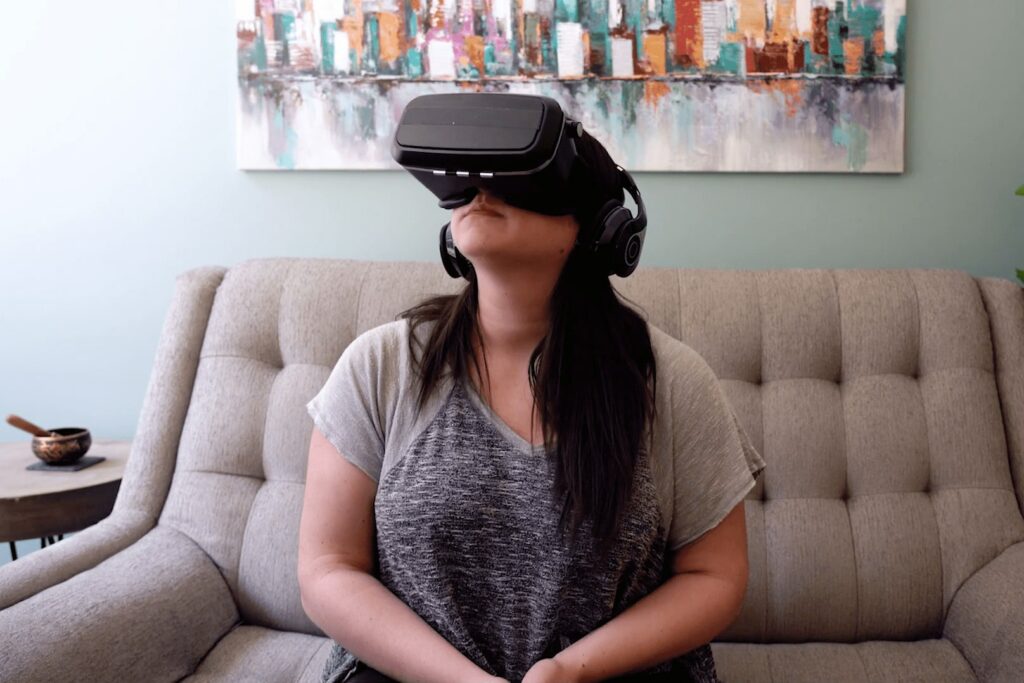Do you have a fear of spiders? Heights? Public speaking? If so, you’re not alone. Millions of people around the world suffer from phobias. A phobia is an intense fear of something that poses no real danger. While there are many different types of phobias, they all share one thing in common: they can be very disruptive and debilitating. In this blog post, we will discuss phobia therapy and how it can help you overcome your fears.
Contents
What Is Phobia Therapy?

Phobia therapy is a type of therapy that helps people overcome their fears. It can be done in a group or individual setting, and it usually involves exposure to the thing that someone is afraid of. This might sound counterintuitive, but research has shown that exposure to fear can help people overcome their phobias.
One of the most common types of phobia therapy is called systematic desensitization. This is when someone is gradually exposed to the thing they’re afraid of, starting with something that doesn’t trigger too much anxiety. They then work their way up to more anxiety-provoking situations until they no longer feel anxious about the thing they’re afraid of.
This therapy is usually done with the help of a therapist, but there are also some self-help options available. If you’re interested in trying phobia therapy, talk to your doctor or a mental health professional to see if it’s right for you.
Different Types of Phobia Therapy

The three most common types of phobia therapy are :
Exposure Therapy
Exposure therapy is a type of behavioral therapy that involves gradually exposing a person to the thing they are afraid of. The goal is to help them overcome their fear and anxiety by facing them in small, manageable steps. This therapy is also a form of behavior therapy, which means it focuses on changing the person’s reaction to the thing they are afraid of.
Cognitive Behavioral Therapy
Cognitive behavioral therapy (CBT) is a type of therapy that helps people change their thoughts and behaviors. The goal of CBT is to help people learn how to better cope with their fears and anxiety. CBT can be used to treat different types of phobias, including social anxiety disorder, agoraphobia, and specific phobias. In CBT, it is also important to learn how to manage stress and anxiety.
Systematic Desensitization
Systematic desensitization is a type of exposure therapy that involves gradually exposing a person to the thing they are afraid of in a safe and controlled environment. The goal is to help them overcome their fear by facing it in small, manageable steps. This therapy is often used to treat specific phobias, such as a fear of flying or a fear of heights. It can also be used to treat other types of anxiety disorders, such as social anxiety disorder and agoraphobia.
Desensitization Therapy
De-sensitization therapy is a very effective phobia treatment. It involves gradually exposing yourself to the object or situation that you’re afraid of. This can be done in your imagination or in real life. With each exposure, you’ll become less and less afraid.
If you have a fear of flying, for example, de-sensitization therapy would involve imagining yourself on an airplane. You might start by thinking about boarding the plane. Then, you’d move on to picturing the takeoff. With each step, you’d feel your anxiety lessen. Eventually, you’ll be able to fly without any fear at all!
Virtual Reality Therapy
Virtual reality therapy is another treatment option for phobias. This type of therapy uses computer-generated images to expose you to the object or situation that you’re afraid of. The goal is to help you confront your fear in a safe environment. Virtual reality therapy is effective for treating several different types of phobias, including acrophobia (fear of heights), arachnophobia (fear of spiders), and claustrophobia (fear of enclosed spaces). If you’re interested in this type of therapy, ask your doctor if there are any VR therapists in your area.
What to Expect in Phobia Therapy?
The expectations of phobia therapy will vary depending on the severity of your phobia and how long you have had it. If you have a severe phobia, it may take longer to overcome your fear. However, with treatment, most people with phobias can eventually confront their fears and live relatively normal lives.
In phobia therapy, you will work with a mental health professional to gradually expose you to the thing or situation that you are afraid of. This process is called “exposure therapy.” Exposure therapy can be done in several ways. You may role-play the feared situation with your therapist. Or, if your fear is not too severe, you may confront the feared object or situation in real life. For example, if you are afraid of heights, your therapist may take you to the top of a tall building.
Exposure therapy can be anxiety-provoking, but it is usually done in a gradual and controlled way. Your therapist will work with you to make sure that you are not overwhelmed by your fear. With exposure therapy, most people with phobias eventually learn to control their fear and live relatively normal lives. If you are interested in learning more about phobia therapy, speak to your doctor or mental health professional. They can help you find a qualified therapist in your area.
Phobia therapy takes time and patience, but it is an effective treatment for overcoming fears. If you think exposure therapy may be right for you, talk to your doctor about it.
Benefits of Phobia Therapy

There are many benefits of phobia therapy. Phobia therapy can help you to:
Identify your specific fears
Fears are often irrational and can be difficult to understand. Phobia therapy can help you to figure out what it is that you’re afraid of, and why.
Develop coping mechanisms
Once you understand your fears, you can begin to develop coping mechanisms. This might involve relaxation techniques, or learning how to reframe your thoughts about your fear.
Build confidence
Phobia therapy can help you to build confidence in yourself and your ability to cope with your fears. With time and practice, you will be able to face your fears head-on.
Learn how to control your anxiety
One of the main goals of phobia therapy is to help you learn how to control your anxiety. This can be done through a variety of techniques, such as breathing exercises and exposure therapy.
Develop healthy coping mechanisms
Sometimes, the way we deal with our fears can be unhealthy. Phobia therapy can help you to develop healthy coping mechanisms, such as talking to a friend or therapist about your fear, instead of self-medicating with alcohol or drugs.
Improve your quality of life overall
Sometimes, our fears can hurt our quality of life. Phobia therapy can help to improve your overall quality of life by helping you to overcome your fears.
Cons of Phobia Therapy
There are many cons of phobia therapy. Some of these are:
Expensive
One of the main cons of phobia therapy is that it can be expensive. This is especially true if you need to see a specialist or go to a hospital for treatment.
Time-consuming
Another con of phobia therapy is that it can be time-consuming. This is because you will need to spend time in therapy sessions and also practice outside of therapy.
Discomfort
Some people may feel uncomfortable during phobia therapy, especially if they are discussing their fears in detail. This discomfort can sometimes make the process of overcoming your fear more difficult.
Efficiency
Sometimes, despite all the effort that goes into phobia therapy, a person may not overcome their fear. This can be frustrating and discouraging.
Not always successful
Finally, it is important to remember that phobia therapy is not always successful. Some people may find that their fear persists even after treatment. If this happens, it is important to talk to your therapist about other options.
Alternatives to Phobia Therapy

Albeit phobia therapy is an effective way to treat your fears, it is not the only method available. Below are some alternatives to phobia therapy that may work for you:
Medications
One of the most common treatment options for phobias is medication. Anti-anxiety medications and beta-blockers can help to control the physical symptoms of anxiety, such as a racing heart and sweating. These medications can be taken on an as-needed basis or on a regular schedule.
These medications are also often used in conjunction with therapy.
Self-Care
An important part of overcoming any fear is taking care of yourself. This means getting enough sleep, eating a balanced diet, and exercising regularly. When you are feeling good physically, it can be easier to manage your anxiety.
You should also make sure to avoid anything that might trigger your phobia. If you are afraid of flying, for example, try to avoid watching movies or TV shows that involve planes.
Conclusion
Phobia therapy can be very effective in reducing your fears. It may take some time and effort, but it is worth it to overcome your phobias. With the help of a therapist, you can identify your triggers and work on techniques to manage your anxiety. You can also learn about your disorder and how to cope with your symptoms. If you are committed to overcoming your fears, phobia therapy can help you lead a happier and more fulfilling life.
If you or someone you know is struggling with a phobia, please reach out for help. There are many resources available to assist you in conquering your fear. Remember, you are not alone!
Hope this article was of help to you! If you are suffering from mental health disorders, you may seek help from Therapy Mantra. We have a team of highly trained and experienced therapists who can provide you with the tools and skills necessary for overcoming mental health disorders. Contact us today to schedule an online therapy or download our free Android or iOS app for more information.


